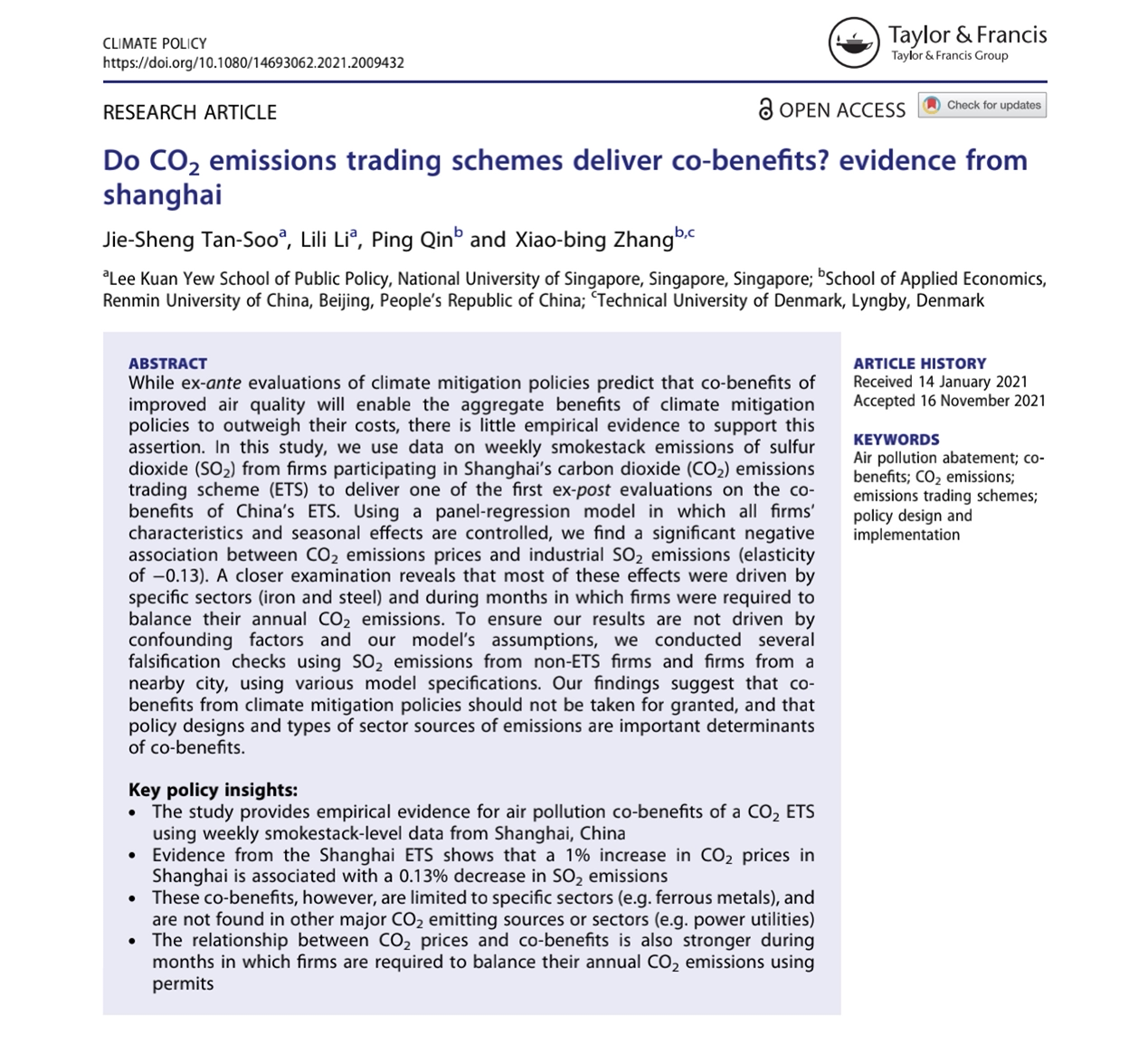Dr. Ping Qing recently had a paper published in the Climate Policy.The paper titled‘Do CO2 emissions trading schemes deliver cobenefits? evidence from shanghai’, was coauthored with Jie-Sheng Tan-Soo and Lili Li from Lee Kuan Yew School of Public Policy, National University of Singapore, Singapore, Singapore, Xiao-bing Zhang from School of Applied Economics, Renmin University of China.

Abstract
While ex-ante evaluations of climate mitigation policies predict that co-benefifits of improved air quality will enable the aggregate benefifits of climate mitigation policies to outweigh their costs, there is little empirical evidence to support this assertion. In this study, we use data on weekly smokestack emissions of sulfur dioxide (SO2) from fifirms participating in Shanghai’s carbon dioxide (CO2) emissions trading scheme (ETS) to deliver one of the fifirst ex-post evaluations on the cobenefifits of China’s ETS. Using a panel-regression model in which all fifirms’characteristics and seasonal effffects are controlled, we fifind a signifificant negative association between CO2 emissions prices and industrial SO2 emissions (elasticity of −0.13). A closer examination reveals that most of these effffects were driven by specifific sectors (iron and steel) and during months in which fifirms were required to balance their annual CO2 emissions. To ensure our results are not driven by confounding factors and our model’s assumptions, we conducted several falsifification checks using SO2 emissions from non-ETS fifirms and fifirms from a nearby city, using various model specififications. Our fifindings suggest that cobenefifits from climate mitigation policies should not be taken for granted, and that policy designs and types of sector sources of emissions are important determinants of co-benefifits.
Other information
Publication Date:2022
Journal:Climate Policy
Journal Issue:1(2022)
DOI: https://doi.org/10.1080/14693062.2021.2009432
Read the paper here.